Lee Rodney teaches one of the best courses at the University of Windsor, Border Culture. I took the course in the fall of 2010 and wrote a book: The Creation of Place in Abandoned Railway Cuts in Windsor.
The book serves as documentation and comparative analysis of three specific forgotten spaces in downtown Windsor, Ontario, Canada. Each of these are former sites of railway lines that ran across the Detroit River into Michigan at the height of industrialization in the first quarter of the twentieth century, but are now closed up dead ends and dead zones, unlit at night and undetectable from street view due to their below street level geography.
These spaces have a transient quality, as people exist in them only while passing through, usually as quickly as they can in order to reach a safer location. The contents of this book are based on my own personal experience in and around these spaces as a young adult white female artist, including historical research on the areas as well as references from multiple disciplines including activism, art, urban planning, geography, design, visual culture, gender and feminist studies. The invisible borders embedded within the fabric of these hidden, forgotten underused and misused spaces is examined.
Over the course of the next month, I will be posting chapters of the book with images on a weekly basis. However, I would like to introduce the book by providing some info and context around what I was reading prior to and during the research phase of this project.
So, without further adieu, a few books that informed my book:
New Frontiers of Space, Bodies and Gender edited by Rosa Ainley
Voices in the Street: Explorations in Gender, Media and Public Space edited by Susan J. Drucker and Gary Gumpert
Speaking for a Long Time: Public Space and Social Memory in Vancouver by Adrienne L. Burk
The Power of Place: Urban Landscapes as Public History by Dolores Hayden
Read on if you’re interested in viewing the complete list of works citied in The Creation of Place in Abandoned Railway Cuts in Windsor…
Research Sources
conversations,
experience
Websites
Windsor-Detroit River Railway History
http://en.wikipedia.org/wiki/Michigan_Central_Railway_Tunnel
http://en.wikipedia.org/wiki/Michigan_Central_Railroad#Service_to_Canada
Atkinson Park Project
http://www.friends4atkinson.com/
Police Crime Reports
http://www.police.windsor.on.ca/Public%20Safety/crime_maps/crime_maps.htm
City of Windsor Department of Parks and Recreation: A History of Windsor’s Parks & City Parks Information via http://www.citywindsor.ca/000350.asp
Gateway Park Website
Class Readings
Atlas of Love and Hate by The Detroit Unreal Estate Agency
Experimental Geography by Nato Thomson
Arts of Urban Exploration by David Pinder
Books & Articles
Burgess, Jacqueline. “But is it Worth Taking the Risk? How Women Negotiate Access to Urban Woodland: A Case Study.” New Frontiers of Space, Bodies and Gender. Ed. R. Ainley. New York: Routledge, 1998. 115-128
Boys, Jos. “Beyond Maps and Metaphors? Re-Thinking The Relationships Between Architecture and Gender.” New Frontiers of Space, Bodies and Gender. Ed. R. Ainley. New York: Routledge, 1998. 203-217.
Spain, Daphne. “Degendering Spaces.” Gendered Spaces. London: The University of North Carolina Press, 1992. 233-243.
Parsons, Clare Olivia. “Reputation and Public Appearance: The De-Eroticization of the Urban Street.” Voices in the Street: Explorations in Gender, Media and Public Space. New Jersey: Hampton Press, 1997. 59-70.
Hayden, Dolores. “Urban Landscape History: The Sense of Place and the Politics of Space.” The Power of Place: Urban Landscapes as Public History. United States of America: MIT press, 1995. 15-44.
Hayden, Dolores. “Place Memory and Urban Preservation.” The Power of Place: Urban Landscapes as Public History. United States of America: MIT press, 1995. 45-78.
Hayden, Dolores. “Storytelling with the Shapes of Time.” The Power of Place: Urban Landscapes as Public History. United States of America: MIT press, 1995. 226-238.
Burk, Adrienne L. Speaking For a Long Time: Public Space & Social Memory in Vancouver. British Columbia: UBC Press, 2010.
Massey, Doreen. “The Political Place of Locality Studies.” Space, Place and Gender. Minneapolis: University of Minnesota Press, 1994. 125-145.
Gleber, Anke. “Female Flanerie and the Symphony of the City.” Women in the Metropolis: Gender and Modernity in Weimar Culture. Ed. K. Von Ankum. Los Angeles: University of California Press, 1997. 67-88.
Dodds, Sherril. “Dance and Erotica: The Construction of the Female Stripper.” Dance in the City. Ed. H. Thomas. London: Macmillan Press, 1997. 218-233.
Binnie, Jon. “The Erotic Possibilities of the City.” Pleasure Zones: Bodies, Cities, Spaces. D. Bell, J. Binnie, R. Holliday, R. Longhurst & R. Peace. New York: Syracuse University Press, 2001. 103-130.
Bell, David. “Fragments for a Queer City.” Pleasure Zones: Bodies, Cities, Spaces. D. Bell, J. Binnie, R. Holliday, R. Longhurst & R. Peace. New York: Syracuse University Press, 2001. 84-102
McLeod, Mary. “Other Spaces and Others.” The Sex of Architecture. Ed. D. Agrest, P. Conway & L. K. Weisman. New York: Harry N. Abrams, 1996. 15-28.
Agrest, Diana. “The Return of the Repressed: Nature.” The Sex of Architecture. Ed. D. Agrest, P. Conway & L. K. Weisman. New York: Harry N. Abrams, 1996. 49-68.
Da Costa Meyer, Esther. “La Donna e Mobile: Agoraphobia, Women, and Urban Space.” The Sex of Architecture. Ed. D. Agrest, P. Conway & L. K. Weisman. New York: Harry N. Abrams, 1996. 141-156.
Torre, Susanna. “Claiming Public Space: The Mothers of Plaza de Mayo.” The Sex of Architecture. Ed. D. Agrest, P. Conway & L. K. Weisman. New York: Harry N. Abrams, 1996. 241-250.
Valentine, G. “The Geography of Women’s Fear.” Area 21 , 1989. 385-390
Grosz, E. Space, Time and Perversion.” London and New York: Routledge, 1995.
Califia, P. Public Sex: The Culture of Radical Sex. Pittsburg: Cleis, 1994.
Mitchelle, D. “Introduction: Public Space and the City.” Urban Geography 17. 1996. 127-131
Massey, D. Spatial Divisions of Labour: Social Structures and the Geography of Production. Basingstoke, Macmillan. 1984.
Pollock, G. Visions and Difference: Femininity, Feminisms and the Histories of Art. London: Verso, 1988.
Reps, J. W. The Making of Urban America. New Jersey: Princeton University Press, 1965
Collins, P. H. Black Feminist Thought: Knowledge, Consciousness, and the Politics of Empowerment. Boston: Unwin Hyman, 1990. 46-47.
Casey, E. S. Remembering: A Phenomenological Study. Bloomington: Indiana University Press, 1987. 186-187.
Common Ground. Mayday!Mayday! London: 1988
Wisdom, Sheila. “The Park That Jack Built.” The Windsor Star, October 7, 2002.
Beneteau, Rick. “A Large Slice of Life to Go, Please!” Tikibooks, 2003.
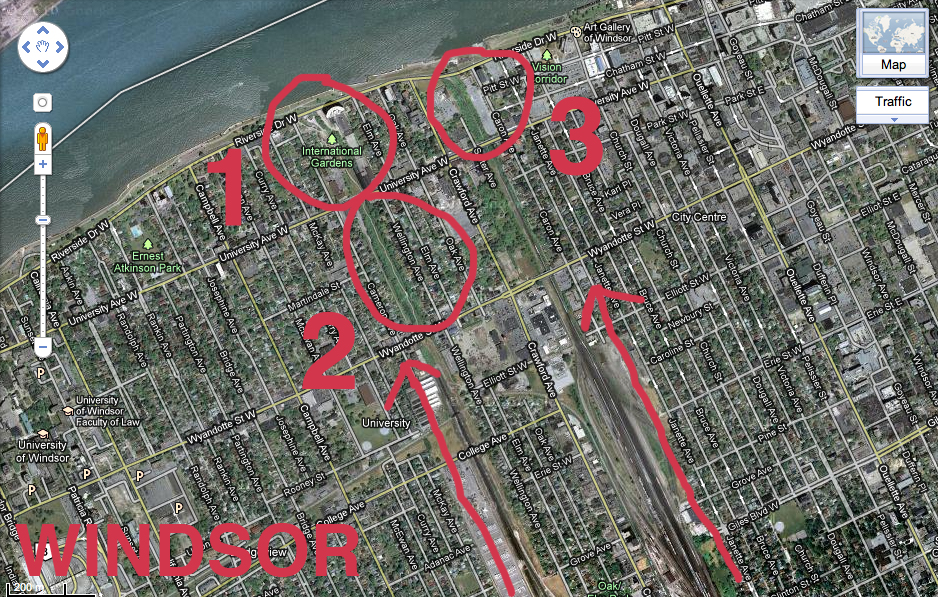
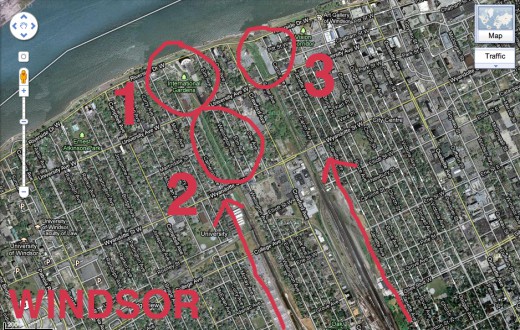
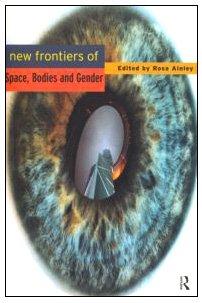
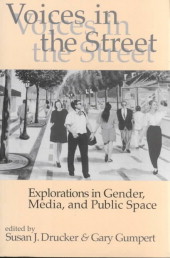
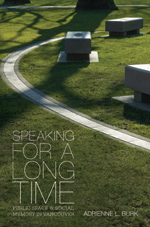
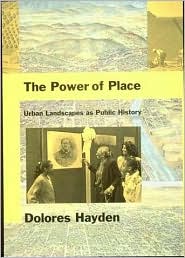
One Reply to “The Creation of Place in Abandoned Railway Cuts in Windsor: 1/4 Intro”
Comments are closed.